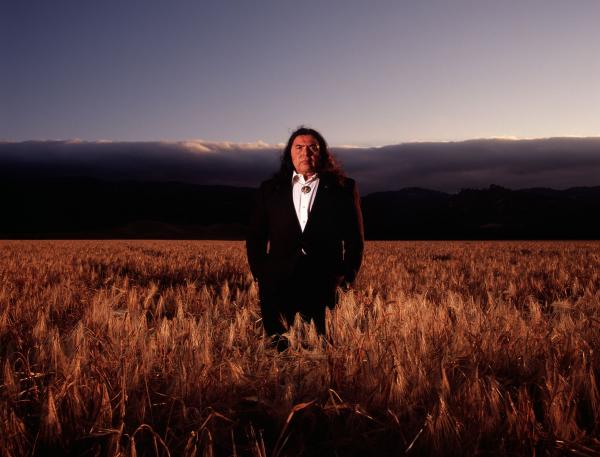
Lynn Armitage, Indian Country Today Media Network
Name: Marshall McKay
Title: Tribal chairman of the Yocha Dehe Wintun Nation
Product: Seka Hills Premium Extra-Virgin Olive Oil
How long in business: First olive trees planted in 2008
Advice for other business owners: “Insist on research, honesty and integrity of the product. It’s essential, and it’s what our tribal values are based on.”
After you build a profitable casino, luxurious hotel and championship golf course, create an award-winning wine label, manage more than 11,000 acres of farm and ranch land—including 300 heads of cattle—and on top of it all, buy back your original tribal lands, what on earth do you do for an encore? RELATED: The Yocha Dehe Return Focus to their Land through an Olive Oil Enterprise—and More
If you’re the very enterprising, 62-member Yocha Dehe Wintun Nation of California’s Capay Valley, you make 100 percent premium extra-virgin olive oil, marketed under the tribe’s distinguished Séka Hills label. RELATED: Oil Boom! Séka Hills Marketing Great Extra-Virgin Olive Oil Nationwide and Yocha Dehe Wintun Launches Séka Hills Brand

“The American consumer is really short-changed when it comes to fresh, virgin olive oil,” says Tribal Chairman Marshall McKay, reflecting on recent studies challenging the purity of many olive oils in the U.S. “So we decided one of our main quests would be to provide that for consumers.”
In 2008, after much research and consulting with the University of California Davis olive center, the Yocha Dehe tribe planted its first olive trees on 80 acres of poor, dry soil—the perfect conditions to grow Arbequina olives, a Spanish variety that prospers in Mediterranean-like climates. And in fall of 2011, they reaped the fruits of their labor.
“We completely sold out of our first year’s production,” says Jim Etters, director of land management for the tribe, who says their olive oil has been described as smooth and buttery, with a hint of grass and black pepper. “It was a strong start and started us on the right foot, helping us develop the market and learn the business.”
The biggest challenge for the tribe was finding a mill where they could process their olives. The nearest facility was two hours away, and for olive oil to be exceptional, it must be milled soon after picking.
So the Yocha Dehe did what any self-sustaining, economically independent tribe would do—they built their own state-of-the-art olive mill, a 14,000-square-foot facility custom-manufactured in Florence, Italy, and among the first of its kind in the U.S., where they process, store and bottle their oil. What sets this mill apart is that it prevents oxygen from ever touching the olives, thereby preserving freshness and flavor. RELATED: Yocha Dehe Olive Oil Attracts the Attention of The New York Times
The new olive mill has been a welcome addition to the Capay Valley, as it is where custom oil for 46 other olive growers is processed and bottled. “The tribe is proud to be able to partner with other local growers in and around the Capay Valley to help build the region’s reputation for world-class olive oil,” says Etters.
Chairman McKay echoes that sentiment. “One of our goals was to bring neighbors together and create agribusiness and a feeling of family in the valley. These olives have really done that for us.”
What’s next for the Yocha Dehe Wintun Nation? “We have organic fields that we are nurturing, sustainable beef that we are raising, conservation of lands, restoration and distribution of energy,” McKay shares. “For centuries, we’ve been tenders of the land—farmers, really. And post-Gold Rush, we are still serving that purpose, nourishing and nurturing the land.”
Read more at http://indiancountrytodaymedianetwork.com/2013/07/24/yocha-dehe-greases-its-impressive-business-wheels-olive-oil-150561
